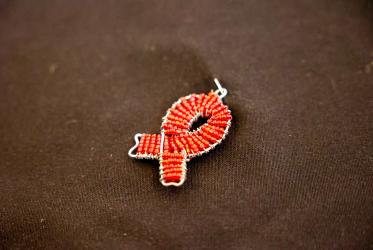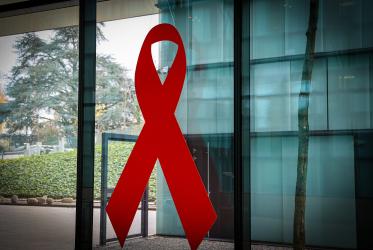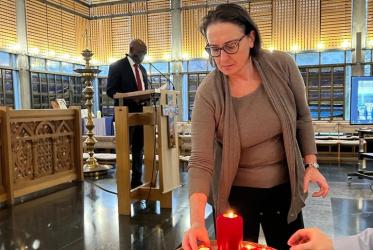This study has made evident the delicate, interwoven relationships of human beings and their connectedness to all of life. It has proved neither desirable nor possible to do a one-dimensional study describing only the dramatic spread of AIDS and its devastating impact on those directly affected. Rather, the AIDS pandemic requires the analysis of a cluster of inter-related factors. These include the theological and ethical perspectives that inform, or arise from, our understanding of AIDS; the effects of poverty on individuals and communities; issues of justice and human rights; the understanding of human relationships; and the understanding of human sexuality. Of these the factor of sexuality has received the least attention within the ecumenical community; and further study in this area is essential for a deeper understanding of the challenges posed by HIV/AIDS.
Our exploration of these themes has brought us face to face with issues, understandings and attitudes which have major consequences for the churches in responding to the pandemic. Through their witness to the gospel of reconciliation, the value of each person and the importance of responsible life in community, the churches have a distinctive and crucial role to play in facing the challenges raised by HIV/AIDS. But if their witness is to be visible and active, it is essential to highlight the following concerns for common reflection and action:
A. The life of the churches: responses to the challenge of HIV/ AIDS
- We ask the churches to provide a climate of love, acceptance and support for those who are vulnerable to, or affected by, HIV/AIDS. This could be expressed by providing space for these concerns to be raised within regular worship, by special worship events (for example, in observance of World AIDS Day on 1 December), through support groups and by visits to those affected by HIV/AIDS.
- We ask the churches to reflect together on the theological basis for their response to the challenges posed by HIV/AIDS.
- We ask the churches to reflect together on the ethical issues raised by the pandemic, interpret them in their local context and offer guidance to those confronted by difficult choices.
- We ask the churches to participate in the discussion in society at large of ethical issues posed by HIV/AIDS, and to support their own members who, as health care professionals, face difficult ethical choices in the areas of prevention and care.
B. The witness of the churches in relation to immediate effects and causes of HIV/AIDS
- We ask the churches to work for better care for persons affected by HIV/AIDS.
- We ask the churches to give particular attention to the conditions of infants and children affected by the HIV/AIDS pandemic and to seek ways to build a supportive environment.
- We ask the churches to help safeguard the rights of persons affected by HIV/AIDS and to study, develop and promote the human rights of people living with HIV/AIDS through mechanisms at national and international levels.
- We ask the churches to promote the sharing of accurate information about HIV/AIDS, to promote a climate of open discussion and to work against the spread of misinformation and fear.
- We ask the churches to advocate increased spending by governments and medical facilities to find solutions to the problems - both medical and social - raised by the pandemic.
C. The witness of the churches in relation to long-term causes and factors encouraging the spread of HIV/AIDS
- We ask the churches to recognize the linkage between AIDS and poverty, and to advocate measures to promote just and sustainable development.
- We urge that special attention be focused on situations that increase vulnerability to AIDS such as migrant labour, mass refugee movements and commercial sex activity.
- In particular, we ask the churches to work with women as they seek to attain the full measure of their dignity and express the full range of their gifts.
- We ask the churches to educate and involve youth and men in order to prevent the spread of HIV/AIDS.
- We ask the churches to seek to understand more fully the gift of human sexuality in the contexts of personal responsibility, relationships, family and Christian faith.
- We ask the churches to address the pandemic of drug use and the role which this plays in the spread of HIV/AIDS and to develop locally relevant responses in terms of care, de-addiction, rehabilitation and prevention.





